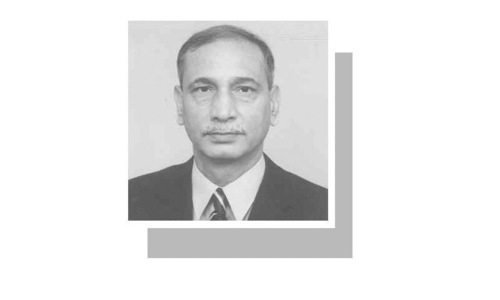AT 1am on June 28, 2009, plain-clothed armed men abducted my father, Dr Deen Mohammad. He was on night duty at a hospital in Ornach, Khuzdar district. My sister and I have abandoned our childhood, our studies, our home — everything — to find him and secure his release.
Nothing has worked. For years, we have camped in front of press clubs in Quetta and Islamabad, clutching a portrait of my father. We have held hunger strikes and sit-ins. We have submitted his case to the Balochistan High Court and the Supreme Court. We have delivered legal testimony and presented eyewitnesses. In the apex court, now retired justice Javed Iqbal once promised us that my father would be released within 10 days. That was over 10 years ago.
In 2013, I joined other families of missing persons from Balochistan and marched from Quetta to Karachi, and then to Islamabad. We walked 3,000 kilometres over 116 days. I have presented my father’s case in front of every human rights organisation in the country. I have gone to the UN. I have asked every major political figure in my province to help find my father. I am in contact with Minister for Human Rights Shireen Mazari. Today, I am sitting at the missing persons camp in front of the Quetta Press Club, marking the 11-year anniversary of my father’s disappearance.
Eleven years ago today, Deen Mohammad went missing.
Our story is not unique. We are one among thousands of other families across Pakistan searching for their loved ones: missing fathers, brothers, husbands and sons. While writing this, I met Hasiba Qambrani and Seema Baloch. Hasiba’s two brothers, Hassan and Hizbollah, were abducted on Feb 14. Having already buried the mutilated body of a third brother, she is terrified they will meet the same fate. Seema’s brother, Shabbir, was picked up during an operation in Gwarkop in October 2016. He remains missing. Thousands of Pakhtuns, Sindhis and Mohajir have been abducted around the country. Like my sister and I, their daughters are also looking for their fathers. In KP, Talia had been desperately searching for her father Idris Khattak since November 2019; it was only recently revealed that he was in custody. In Sindh, Sasui and Sorath spent 2 years searching for Hidayatullah Lohar, who went missing in April 2017 and returned May 2019.
Yet every time we try to raise our voice, we are bullied. Those who stand by us in cities like Lahore and Islamabad are harassed and threatened.
Since it was set up by the government in 2011, more than 6,000 cases have been registered with the Commission of Inquiry of Enforced Disappearance; over 2,000 are still pending. Of the cases that have been ‘disposed’ of, 823 of the missing were found in internment centres, 510 in prisons facing trial, and 213 have died. The inability to account for the missing and lack of support from the CoIoED has led the families of missing persons in Balochistan to boycott their proceedings.
Dr Deen Mohammad is not the only disappearance we live with. The day he went missing, so did a lot of other things. We lost a home, once peaceful; joy and celebration; our childhood. We lost a mother’s son, a wife’s husband, and a father to three children. When he was abducted, our entire lives came undone. Our family was in torment, suffering socially, financially, mentally and physically. My sick mother raised us without his support and companionship. Everything we once had went missing. Every day my family and I wonder, ‘Where is he? What state is he in?’ Every day we are reminded that we know nothing about his whereabouts; we don’t even know if he is alive.
I don’t know why my father was picked up, but I have always said: if he has done anything illegal, then present him in a court of law and deliver his punishment after a trial. Consider him, and us, equal citizens and use the same law that applies to all other citizens. Don’t make him disappear like this. Don’t torture us.
My family and I can no longer bear the heaviness of this wait. We’re tired now; we’ve been struggling for 11 years, but no one seems to hear us. I’ve learnt that a lot of people speak about the Baloch missing persons issue for a bit, but then move on. They forget that families like mine cannot move on. Many talk of human rights, sometimes raise their voice for the smallest of issues, but ignore rampant enforced disappearances taking place across Pakistan.
We were little girls when our father disappeared; I was 10 and my sister eight years old. Now we are young women, still waiting for his return. The more time passes, the more his life is in danger. I don’t have words to express what my family continues to go through. Sometimes, we’ll hear rumours that raise our hopes. But when tortured bodies and mass graves continue turning up in Balochistan, disappointment and helplessness return.
I ask all those who feel any compassion for human rights and dignity in Pakistan to stand by us, the families of missing persons, and join their voices with ours. Stand by me, and help bring my father back. End these injustices.
The writer is a missing persons activist.
Published in Dawn, June 28th, 2020











































